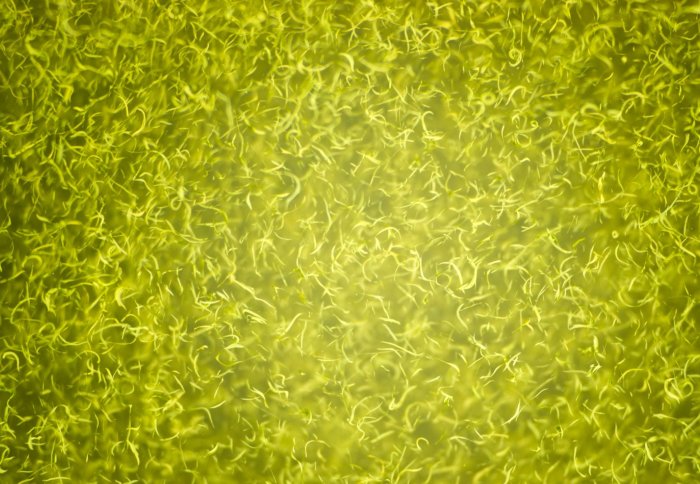Microscopic organism to make green fuels in new project
by Colin Smith

Researchers are engineering cyanobacteria to excrete clean fuel and oxygen
A project to develop clean fuels using microscopic organisms called cyanobacteria has been given the green light.
Cyanobacteria, so called because of their cyan or blue-green colour, get their energy from sunlight through photosynthesis. They excrete oxygen as a by-product. Billions of years ago they are thought to have dramatically changed the composition of the Earth’s atmosphere, stimulating a flourishing of different forms of life and leading to the near-extinction of organisms that were intolerant of oxygen.
Billions of years ago these little organisms may have played an important role in helping our planet to be more liveable. Now we are enlisting their help to help fight against the world becoming a more hostile place through climate change.
– Dr Patrik Jones
Department of Life Sciences
Now, researchers are seeking to re-engineer cyanobacteria to produce low-carbon liquid fuel as well as oxygen, in a project called PhotoFuel. The team believe this project could provide another important alternative in the energy mix, which could help to reduce harmful carbon dioxide emissions from transport.
Imperial College London researchers are part of the €6 million PhotoFuel consortium, which is led by the car manufacturer Volkswagen, and includes five other academic partners and a further six industrial collaborators. The consortium team aim to develop a prototype system using a bioreactor to house the re-engineered cyanobacteria. The idea is that the bioreactor will feed sunlight, water and carbon dioxide to the cyanobacteria, which will convert it into clean alkane and alcohol fuels.
The ultimate vision of this project is that these bio-reactors could be scaled up to an industrial level, with “living refineries” producing sustainable, low-carbon and cost-effective fuels that could be transported to petrol stations.
As part of the consortium, the Imperial researchers will focus on two major projects, which have received €1.17 million. One group, led by Dr Patrik Jones from the Department of Life Sciences at Imperial, will focus on developing cyanobacteria strains that are capable of producing the fuels. The team led by Professor Klaus Hellgardt from the Department of Chemical Engineering at Imperial will focus on optimising the living conditions for the cyanobacteria inside the prototype bioreactor. They will also investigate ways of harvesting the fuel from the bioreactor for immediate use.
Dr Jones said: “Billions of years ago these little organisms may have played an important role in helping our planet to be more liveable. Now we are enlisting their help to help fight against the world becoming a more hostile place through climate change.
If we achieve what we’re setting out to, one day you might be able to fill up your car using fuel excreted by these microscopic organisms as a by-product of their daily diet.”
Dr Hellgardt added: “We need to have a secure supply of energy in order for our modern world to keep on functioning, but the carbon emissions from fossil fuels are contributing to climate change and we need to address that as well. That is why projects like PhotoFuel are so important. It could provide us with another source of clean energy, helping to mitigate the effects of vehicles on our environment.”
Each PhotoFuel project will focus on a specific research area, such as : re-engineering the cyanobacteria for use in the prototype bioreactor; testing their effectiveness on a pilot scale; determining how these fuels affect engine performance; assessing the risks to industry of implementing the technology, and evaluating the potential economic and social impacts if the PhotoFuel project was implemented Europe-wide.
The European Union is funding the four-year project through their Horizons 2020 programme. Other partners include: Volkswagen AG, Germany; Uppsala Universitet, Sweden; Universität Bielefeld, Germany; Università degli Studi di Firenze, Italy; A4F Algafuel SA, Portugal; IFP Energies Nouvelles, France; Neste Oil Corporation, Finland; Karlsruhe Institute of Technology, Germany; Centro Ricerche Fiat SCPA, Italy; VOLVO Technology, Sweden and SYNCOM F&E Beratung GmbH, Germany.
Article text (excluding photos or graphics) © Imperial College London.
Photos and graphics subject to third party copyright used with permission or © Imperial College London.
Reporter
Colin Smith
Communications and Public Affairs